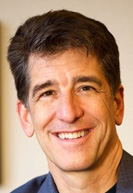Subscriber Benefit
As a subscriber you can listen to articles at work, in the car, or while you work out. Subscribe NowAs an entertainment attorney, Matthew Dresden has a certain affinity for independent filmmakers based on his own experiences.
 Prior to attending law school, Dresden worked in Hollywood for eight years as an independent filmmaker, starting as a production executive for Roger Corman’s Concorde-New Horizons Pictures, according to his firm bio.
Prior to attending law school, Dresden worked in Hollywood for eight years as an independent filmmaker, starting as a production executive for Roger Corman’s Concorde-New Horizons Pictures, according to his firm bio.
Dresden, an attorney with Seattle’s Dresden Law PLLC, also teaches Indiana University Maurer School of Law’s independent film production practicum, a course touted as providing students with real-world experience acting as legal counsel on independent film projects. That experience can come in a lot of different ways, such as getting the rights to books or screenplays or working on actor, director and writer agreements.
Once, Dresden recalled, a client needed to negotiate with a company that makes the Rubik’s Cube and get a clearance agreement to include the product in a film.
“It was small, but it was important to the filmmaker,” he said.
Coming to Bloomington
According to IU Maurer, the independent film production practicum allows students to learn about the legal aspects of financing, developing, producing and exploiting independent films.
The legal services students could be asked to provide may include drafting and negotiating production documents, including option and purchase agreements, cast and crew agreements, location agreements and music licenses. Additional course work could include reviewing scripts and rough cuts and advising clients regarding copyright and clearance issues such as fair use, public domain usage, right to privacy, defamation and rights of publicity, and reviewing distribution agreements and advising clients on the exploitation of projects.
The practicum, first introduced in the 2018-2019 school year, has been offered four times, Dresden said. He’s a graduate of the UCLA School of Law, where he said he read a story in an alumni magazine about a similar course that focused on documentaries and having students help with some the legal work involved. That sparked his interest in launching his own practicum.
One of his clients is Pigasus Pictures, an independent film production company based in Bloomington.
Pigasus’ first feature film was “The Good Catholic,” and Dresden said the company’s members were speaking on the IU-Bloomington campus about the production.
Someone from IU Maurer was at that talk and asked if Pigasus’ attorney would be interested in teaching at the law school, Dresden said.
 Robert Meitus, an adjunct professor at IU Maurer and a partner with Meitus Gelbert Rose LLP, said he likes that the law school has shown support to entertainment law by offering courses like the one Dresden teaches.
Robert Meitus, an adjunct professor at IU Maurer and a partner with Meitus Gelbert Rose LLP, said he likes that the law school has shown support to entertainment law by offering courses like the one Dresden teaches.
Meitus teaches entertainment law and the IP practicum in entertainment law at IU Maurer and is also the faculty adviser for the school’s Sports and Entertainment Law Society.
His Bloomington-based firm has a focus on entertainment law, and classes like the independent film production practicum are directly relevant to the kind of law he practices, with its dealings with creative works, scripts and focus on copyrights.
“We’re glad he’s teaching it,” Meitus said.
Meitus said he’s an advocate of learning facets of law from different angles. He said Dresden is a great instructor, so he’s glad IU Maurer is offering the course via videoconference.
“Technology again is used to enhance students’ access to professionals. In this case, it’s a teacher,” he said.
Dresden said Meitus has been extremely helpful and is knowledgeable about the practicum.
In class, on set
Dresden said he has to be flexible with the class throughout the year, as film production schedules and projects don’t always perfectly align with the academic calendar.
He said the target number of students for each practicum is 8-10 students. The majority of the practicum is done in the classroom, with occasional film set visits.
During the practicum, students get an overview of the various roles an entertainment attorney plays when representing a film production company.
Dresden acknowledged it’s helpful for students to directly interact with people involved with the films.
“It’s one thing for me to lecture about it,” he said. “It’s another thing to talk to the producers.”

LaShaila Spivey took the practicum in the spring semester of 2019, prior to her graduation from IU Maurer.
Spivey, now a solo attorney in Indianapolis, said the practicum was a pilot program at that time, and she was one of three students in the course that semester.
She knew at the time that she wanted to practice intellectual property law, so one of her professors, Mark Janis, director of IU Maurer’s Center for Intellectual Property Research, encouraged her to take the practicum to get hands-on experience with copyright law.
“Honestly, anything he recommended, I was sold,” Spivey said.
In the practicum, it was helpful to work with a licensed, experienced attorney like Dresden, Spivey said.
The course offered a lot of agreement and contract drafting opportunities, she recalled, with students drafting various agreements for producers, actors and directors and getting direct interactions with clients.
“Matthew was big on it,” Spivey said.
The class also involved a lot of research into whether certain clips and images were in the public domain, she added.

Similar to Spivey, Francesca Campione knew during her time at IU Maurer that she wanted to go into soft IP law.
Campione, a New York-based trademark and brand management attorney with Frankfurt Kurnit Klein & Selz P.C., said she took the practicum during the 2020 spring semester. Her course work included working on actor agreements for things like the placement of actors’ names in the film’s credits.
Campione was one of four students in her practicum.
For one movie, she worked on a product placement agreement and reached out to a company, which is similar to what Campione might do as a trademark attorney. It was her first experience looking at real contracts for real transactions.
“I felt like since this was real, it made a difference,” she said.•
Please enable JavaScript to view this content.
